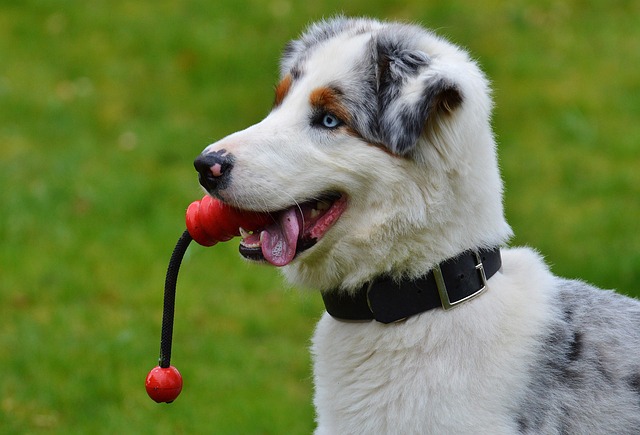
How to get dead flaky skin off a dog
How to get dead flaky skin off a dog? If you’ve ever buried your face in your golden retriever “Max’s” fur for a cuddle, only to pull back with tiny white flakes clinging to your sweater
That worried feeling hits every dog owner: your usually playful pup turns away from breakfast, has loose stools, or maybe even vomits a little. Digestive upset is incredibly common, but knowing how to gently guide your furry friend back to gut health is key. Let’s walk through practical, vet-approved steps you can take at home, keeping everyday life and responsible ownership in mind.
First things first, a temporary gut reset often helps. Offer a bland diet for 24-48 hours – think plain, boiled white chicken (no skin or bones!) or lean ground turkey mixed with plain, cooked white rice or pumpkin puree (not pie filling!). This gives the irritated digestive tract a break. Crucially, always ensure your dog’s core vaccinations are up-to-date, as required by law pretty much everywhere. Not only does this protect against serious diseases like parvovirus (which causes severe vomiting/diarrhea), but many boarding facilities, dog parks, and even some groomers require proof. It’s a fundamental part of responsible pet care. Remember those poop bags! Cleaning up after your dog in public spaces isn’t just good manners; it’s often mandated by local ordinances and keeps parks pleasant for everyone.
Diet is usually the prime suspect for recurring tummy troubles. If bland food settles things, transition very slowly back to their regular kibble over 7-10 days, mixing increasing amounts of the new with the old. A sudden switch is a classic trigger. Think about the quality of their main food. Look for highly digestible options with real meat as the first ingredient and limited fillers. Some dogs thrive on sensitive stomach formulas. Pay close attention to treats and table scraps too – fatty bits of bacon or rich cheeses are frequent culprits. Keep human food sharing minimal and dog-safe. Even that enthusiastic greeting from the neighbor’s boisterous Boxer during walks can stress a sensitive doggo, impacting digestion – gentle management helps. Consistent dog digestive health starts with mindful canine nutrition.

How you interact with your dog matters deeply for their overall well-being, including digestion. If accidents happen indoors due to urgency from an upset tummy, never punish. Yelling or rubbing their nose in it only creates fear and anxiety, potentially worsening the problem. Focus on calmly cleaning up and getting them outside more frequently. This approach aligns perfectly with modern, reward-based positive reinforcement training, which is not only more effective but also the expected standard in communities focused on animal welfare. Building a trusting bond reduces stress, a known factor in digestive issues. For apartment dwellers, managing potential noise anxiety (using white noise or calming aids if needed) and ensuring regular, predictable potty breaks are crucial stress-busters.
Sometimes, simple home care isn't enough. If your dog is lethargic, has bloody diarrhea, persistent vomiting, seems painful, or isn’t improving within a day or two, call your vet immediately. Dehydration can set in fast, especially in smaller dogs or puppies. Be ready to describe the symptoms clearly: when they started, frequency, what the vomit/stool looks like, and any potential dietary indiscretions (like raiding the trash!). Your vet might recommend diagnostic tests or prescribe medications like probiotics or specific gastro diets. Think of your vet as your partner in your dog’s health journey; regular check-ups help catch underlying issues early.
Prevention is always better than cure. Stick to a consistent feeding schedule and measured portions – no overflowing bowls! Provide constant access to fresh water. Manage stress through predictable routines, quiet spaces, and appropriate exercise tailored to their breed and energy level. Gentle walks not only aid digestion physically but also reinforce good community manners – keeping your dog leashed where required and respecting others' space. A happy, well-adjusted dog living in a stable environment with a suitable diet is far less likely to face chronic digestive woes. Paying attention to these details fosters lasting dog digestive health and a joyful life together

How to get dead flaky skin off a dog? If you’ve ever buried your face in your golden retriever “Max’s” fur for a cuddle, only to pull back with tiny white flakes clinging to your sweater

Will my dog’s paw pad heal on its own? If you’ve ever ended a walk with your Australian shepherd “Milo” to find tiny spots of blood on the sidewalk, then noticed a ragged scratch on his paw pad

You’re out in the yard, watching your dog chase a ball, when you notice they’re moving a little stiffly—maybe hesitating before jumping up on the porch, or limping slightly after a quick run.

How do I toughen up my dog’s paw pads? If you’ve ever watched your 3-month-old golden retriever puppy “Buddy” pause at the edge of the sidewalk

It’s a scenario many new dog owners know too well: you wake up to find your pup’s bed dotted with small puddles of diarrhea, or they turn up their nose at breakfast and let out a low, unhappy whine.

That unmistakable fishy odor suddenly filling your studio apartment, or your pup doing an urgent "scoot" across your favorite rug – it’s frustrating and concerning.